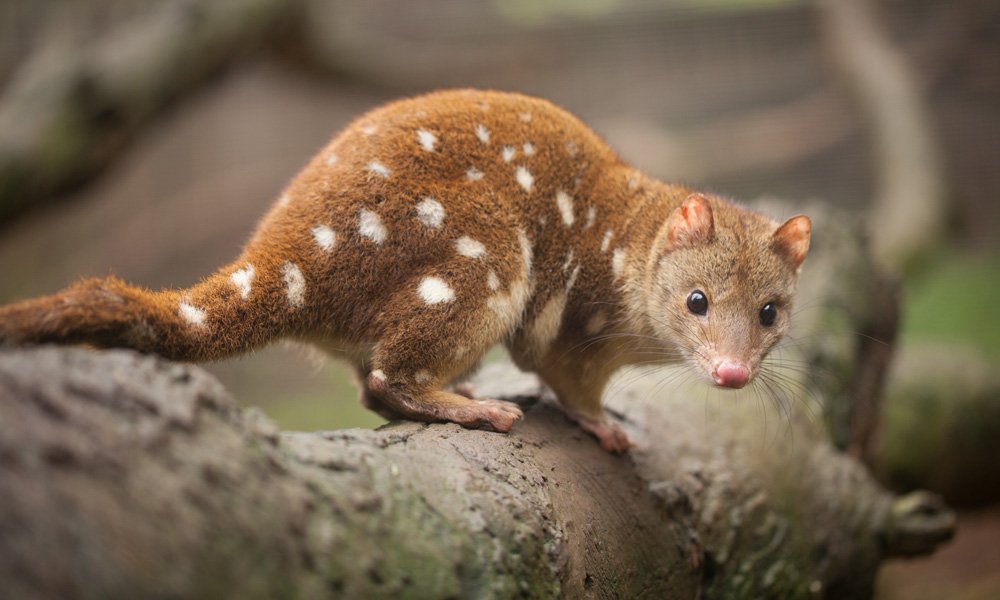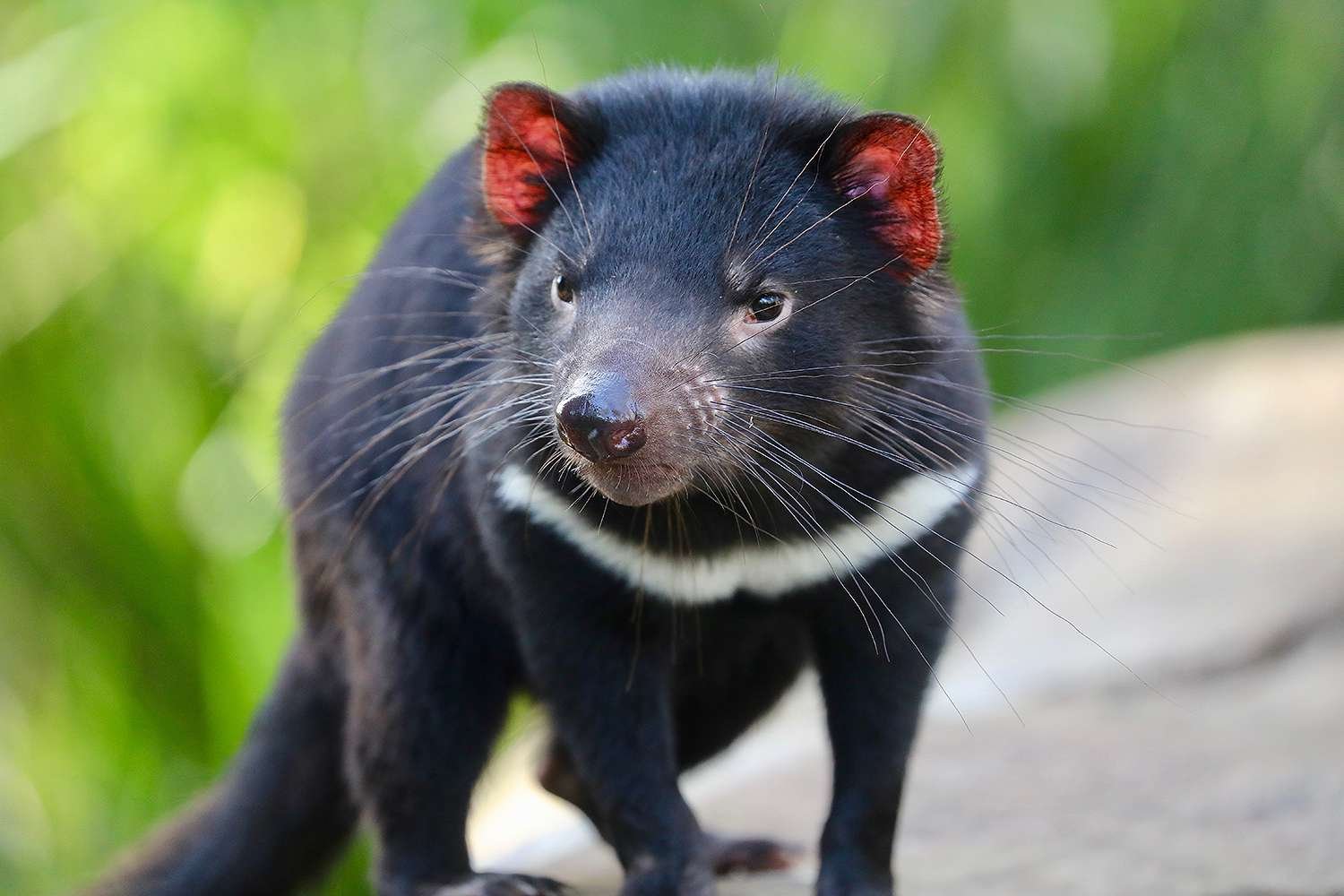Quoll-ity Conservation
The Eastern quoll (Dasyurus viverrinus) is listed as endangered under federal legislation and by the IUCN. Mainland Australian populations of this species declined rapidly in the late 1800s and eventually went extinct. And so Tasmania remains the last stronghold for the species largely due to the absence of foxes.
However rapid declines of at least 50% are estimated to have occurred state-wide in the ten years to 2009.
In collaboration with Tasmanian Land Conservancy and other zooigical institutions we are part of a broader picture in conserving the Eastern Quoll.
-
Being part of a breeding program means that we are commited to keeping the genetic diversity of a species as variable as possible. This enables the best possible outcome for one day releasing animals into the wild. This works by acting as a 'dating agency' for quolls. We have just sent 20 Eastern Quolls on planes all over the country to be 'matched' with other quolls enabling lots of Quoll-ity babies to be produced.
Recently Tasmainian Land Conservancy came to Nature World to take biospies of all our Eastern Quolls as part of a large scale analysis to look at there genetic variations compared to wild populations.
If you would like to contribute to our conservation efforts please click the donation button here. Your donation will help pay for food, specialised staff training , transportation costs to send animals interstate for breeding and any vet care needed.
Sanctuary for injured wildlife
According to Roadkill Tas, it is estimated that 293,000 animals lose their lives on the road each year in Tasmania. That equals 32 killed animals per hour on average for the year!
Once an injured animal comes into care, the aim is to get it medical treatment, rehabilitate and release it back into the wild. Unfortunately that is not always possible. That's where East Coast Nature World plays a huge role in caring for Tasmania's wildlife that would otherwise be euthanised.
-
Animals like 'Tony our Tawny frogmouth', which has a missing eye or Maggie our magpie who can't fly. These animals wouldn't be able to fend for themselves in the wild if they were released.
If you would like to help us support Tasmania's wildlife you can:
Make a monetary donation button by clicking here which helps us pay for food, vet treatment/ medications, and improving their environment.
Donate pouches for joey's such as wallabies and possums.
Donate linen such as Towels, tea towels, pillow cases, face cloths and flannelette sheets.
Tasmanian Devil Ambassador Program
East Coast Nature world has been contributing to the conservation of the Tasmanian Devil since 2013. We play a key role in the conservation of the species through our scientific communication program. We are the bridge between the scientific community and people.
-
With our Free daily feeding demonstrations, this allows people to see the Tasmanian Devil's natural feeding habits, learn more about the species biology, the cancer causing their decline, and whats being done to help save them.
We also have a Devils in the Dark Tour, which has been termed 'the best Tassie Devil experience in Tasmania'.


